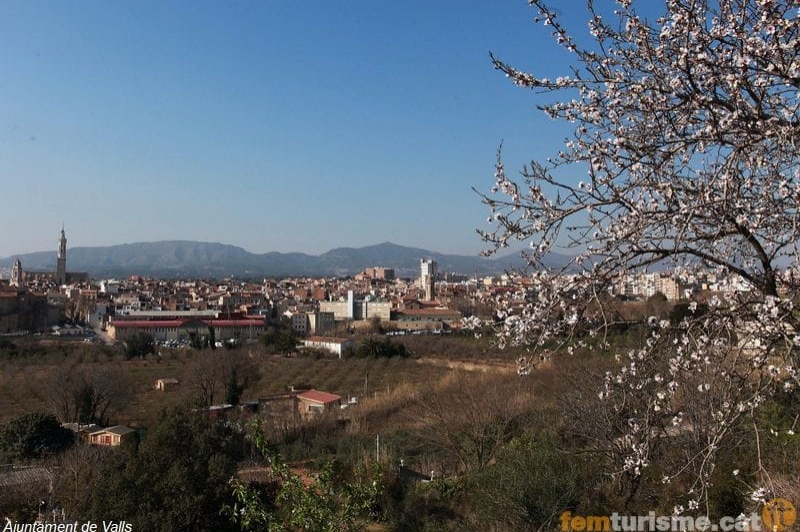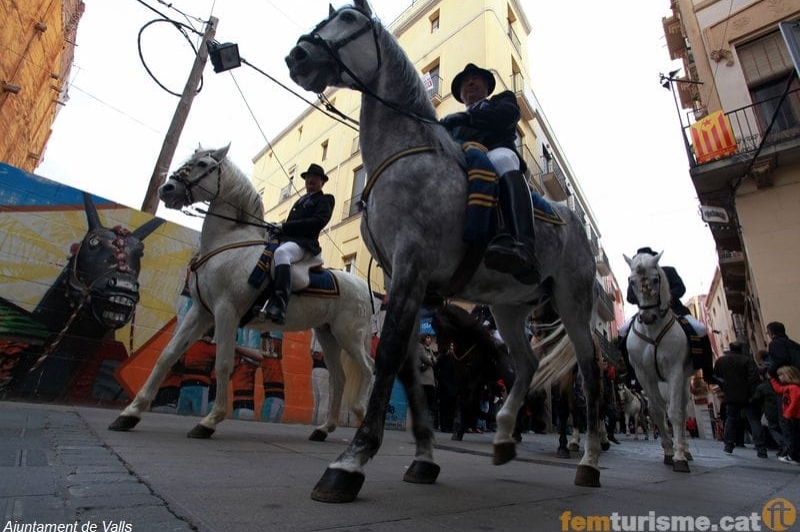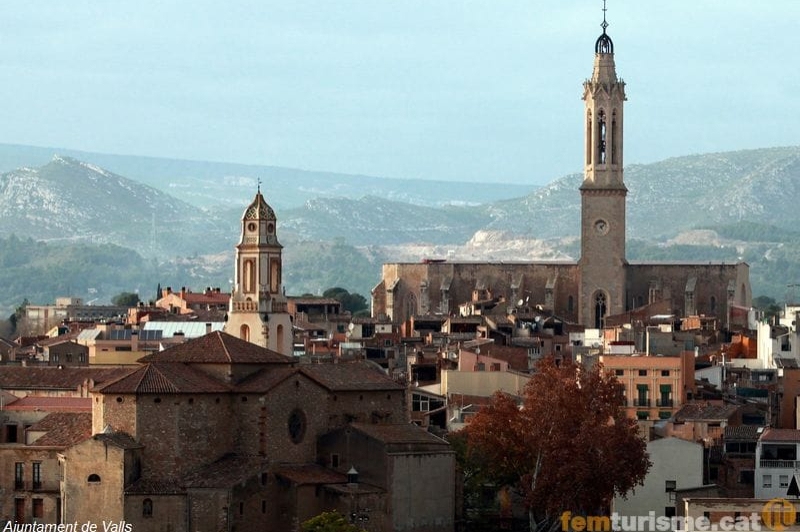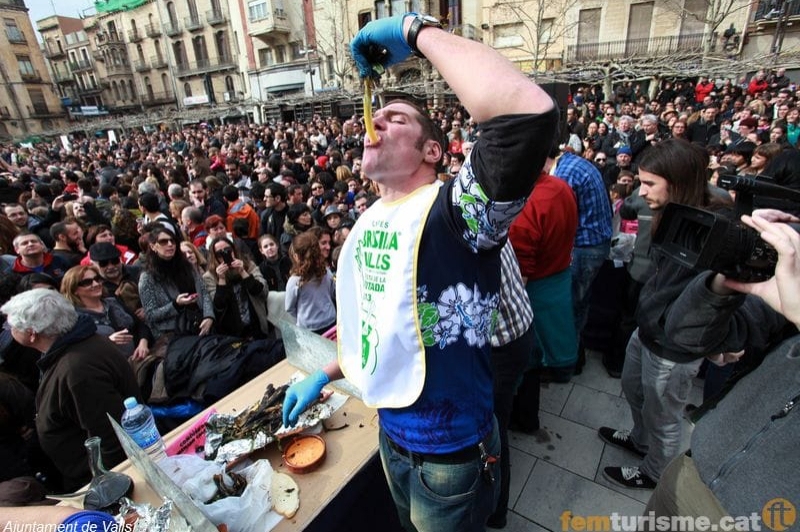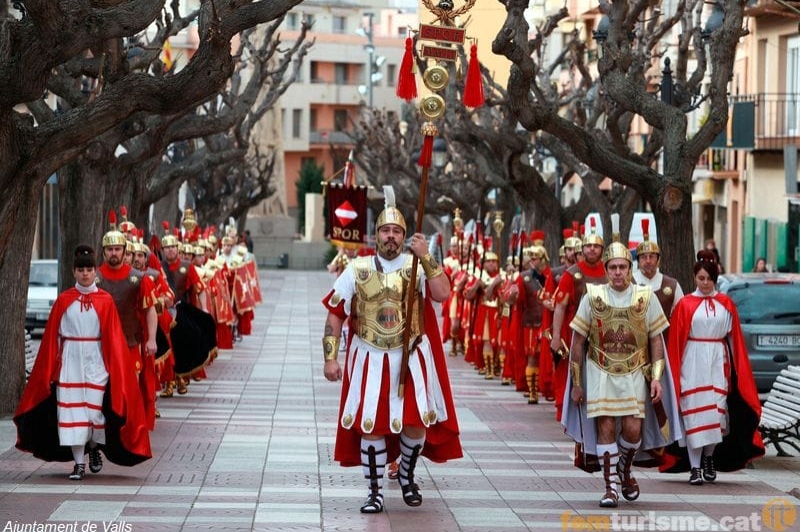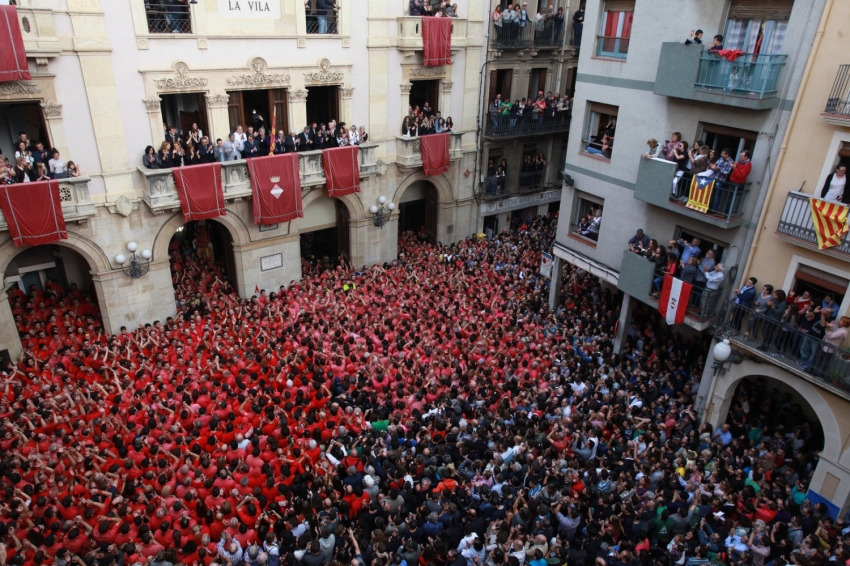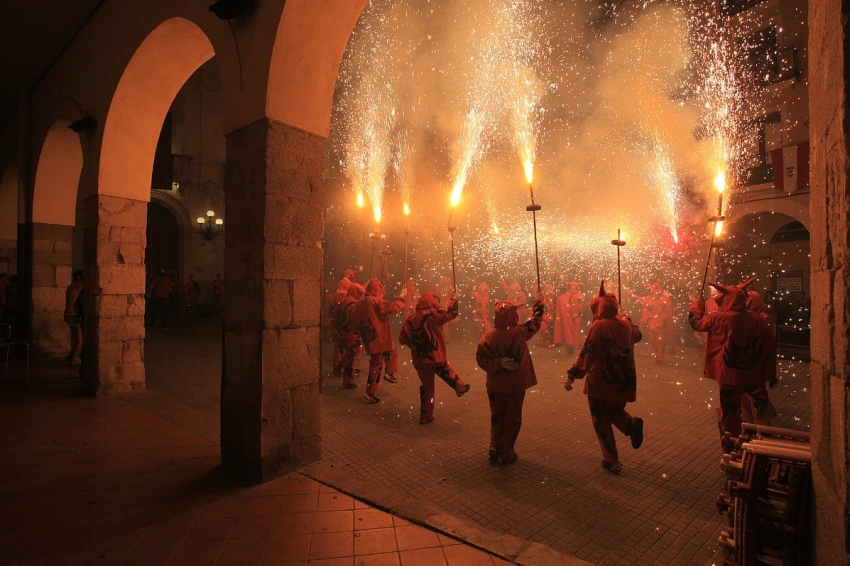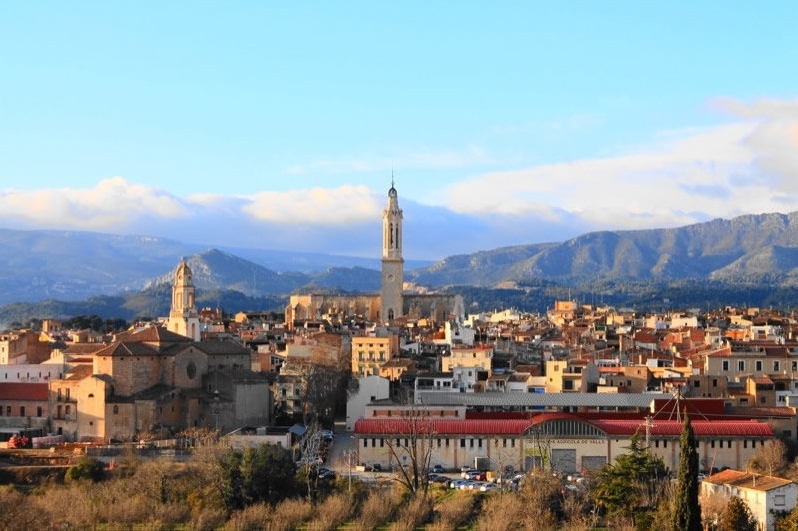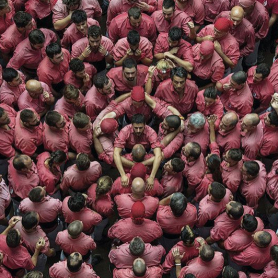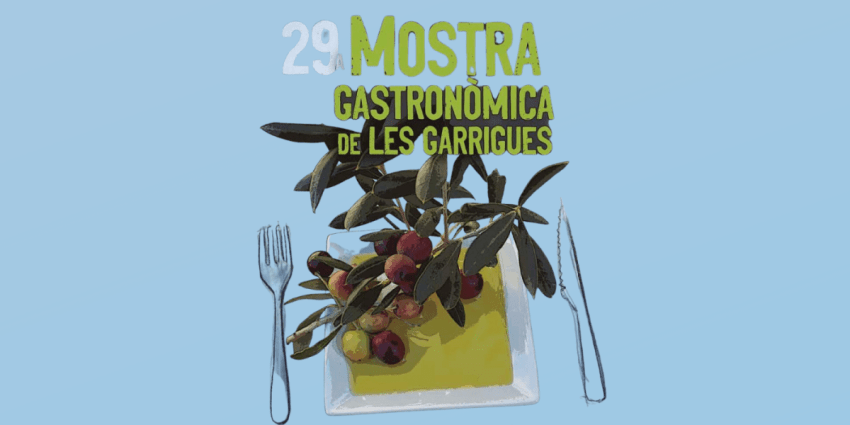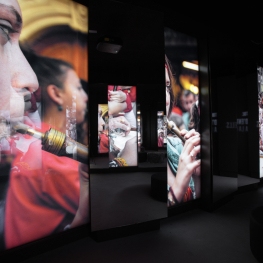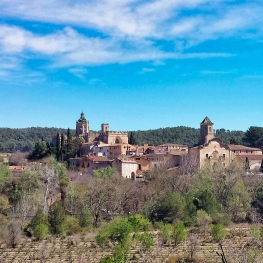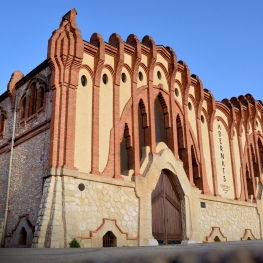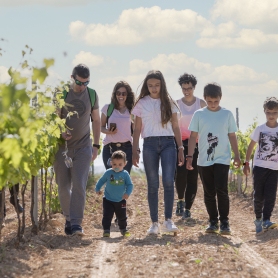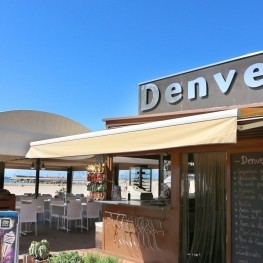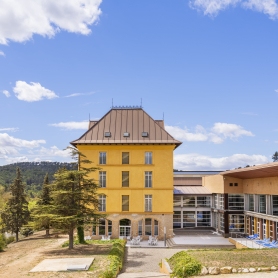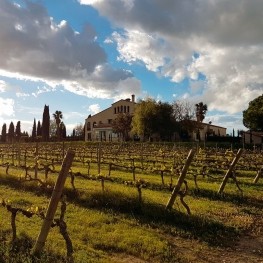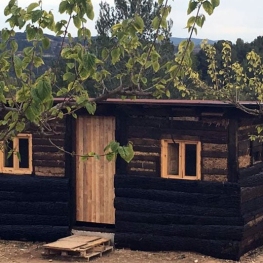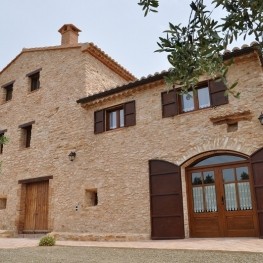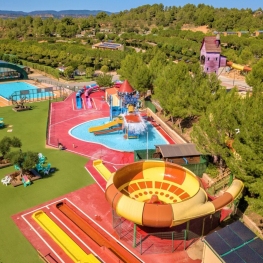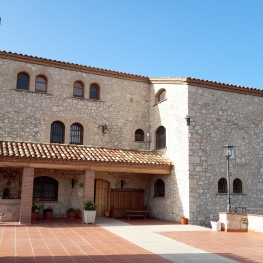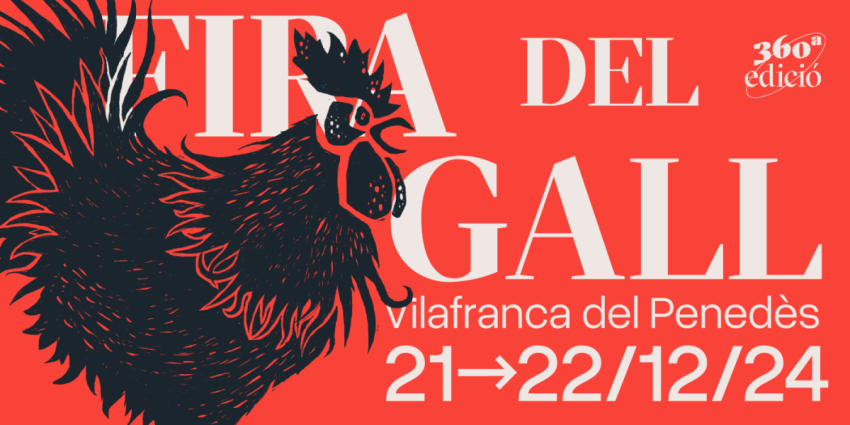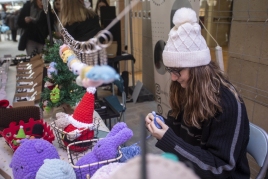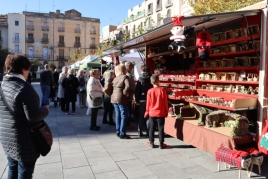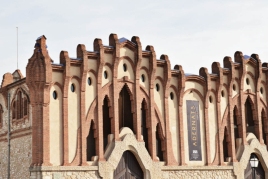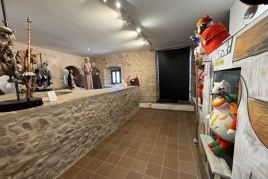Valls
Valls, capital of the Alt Camp region, in the province of Tarragona, is located on the left bank of the Francolí River, southeast of the Miramar mountain range.
The municipality includes small towns such as Fontscaldes, located at the foot of Lilla (Miramar mountain range); Masmolets, located about 4 kilometres north of Valls; Picamoixons, at the western end of the municipal area, and the small villages of Olivet, Palau de Reig and Espinavessa, currently unpopulated.
History
The history of Valls dates back to the first half of the 12th century, when King Pedro the Catholic granted the town the privilege of holding a weekly market. Valls retains a medieval air, evident in its narrow streets in the old town and in the remains of the ancient walls built at the end of the 14th century.
Impressive architectural examples have survived from its long history. The most notable is the archpriestal church of San Juan Bautista, built in the 16th century in Gothic style, with a Renaissance façade. Its neo-Gothic bell tower, 74 metres high and built in 1897, is the tallest of all the parish churches in Catalonia.
Another example is the Sanctuary of the Virgin of Lledó, from the 18th century and in Gothic style, where the image of the patron saint of the city, the Virgin of Lledó, is found, found in 1366. It is also interesting to visit the Chapel of the Rosary, which houses one of the most important works of Catalan ceramics from the 17th century, as well as clocks from the 12th century. Other recommended churches are the San Antonio Abad, in Baroque style and from the 18th century, and the Church of Carmen, also from the 18th century.
Places of interest
Archpriest Church of St. John the Baptist
Built in the 16th century, it is one of the most outstanding religious buildings in Valls. Its architecture combines Gothic elements with an elegant Renaissance façade. Its neo-Gothic bell tower, 74 metres high, is the tallest among the parish churches in Catalonia. Inside you can admire valuable works of sacred art that enrich its historical heritage.
Sanctuary of the Virgin of Lledó
Built in the 18th century, this sanctuary is a spiritual point of reference for the people of Valles. It houses the image of the Virgin of Lledó, patron saint of the city, found according to legend in 1366. The Gothic style building is characterised by its serenity and by its surroundings, which invite reflection and contemplation.
Chapel of the Roser
The Roser chapel is one of the cultural treasures of Valls. Inside it is preserved one of the most important Catalan ceramic works from the 17th century, with representations of the Battle of Lepanto. You can also see clocks from the 12th century and other decorative elements of great artistic value. This small but significant building is a must-see for lovers of history and art.
Old town and medieval walls
Strolling through the old town of Valls, you can enjoy the authenticity of its narrow, cobbled streets, which still retain their medieval charm. You can still see the remains of the medieval walls, built at the end of the 14th century to protect the town. Some of the old entrance gates are still preserved, evoking the town's historical past.
Blat Square
Considered the kilometre zero of the casteller world, this square is the heart of Valls. The most emblematic performances of the local casteller groups take place here, especially during the festivities of San Juan and Santa Úrsula. The square is surrounded by historic buildings that bear witness to the rich history of the city. It is a meeting point for the people of Valls and an essential place for visitors who want to understand the city's passion for castellers.
Monument to the Xiquets of Valls
Located in a prominent spot in the city, the monument pays homage to the Castellera tradition of Valls, recognised as the cradle of the castells. The sculpture, with its representation of strength and unity, captures the spirit of human towers, one of the greatest expressions of Catalan culture. A symbol of local pride that you cannot miss.
Valls Museum
Located in the heart of the city, the museum allows visitors to discover the history of the region through collections ranging from archaeology to contemporary art. In addition to permanent exhibitions, the museum offers cultural activities and temporary exhibitions, providing an in-depth insight into the rich history and art of Valls.
Olive Square
With its characteristic porches and welcoming atmosphere, the square is one of the most picturesque corners of the city. Originally an oil trading place, it remains a meeting point where locals and visitors can enjoy the local cuisine in its traditional restaurants.
Pati Square
One of the largest and most dynamic spaces in Valls, which serves as a meeting point for both locals and tourists. Throughout the year, the square hosts various events, from markets to popular festivals, and its surroundings are full of cafés and shops, creating a lively and welcoming atmosphere.
Air Raid Shelter / Space of Memory
Preserved in its original state, the air raid shelter offers a real insight into what its inhabitants experienced during the Spanish Civil War. This historic space, combined with the Space of Memory, allows us to learn about the difficulties of the time through exhibitions and testimonies that help us understand this part of local history.
Josep Busquets Workshop
The workshop of sculptor Josep Busquets allows visitors to delve into the world of the artist and his work. In addition to seeing a wide range of his sculptures, the place offers a unique opportunity to learn about his creative process in the same space where he worked for years.
Principal Theatre
With classical architecture and excellent acoustics, the Teatro Principal is the cultural centre of Valls par excellence. This theatre hosts a varied programme that includes theatre, music and dance performances, making it a perfect place to enjoy the performing arts in a welcoming environment.
Gastronomy
The gastronomy of Valls is famous for calçots, a variety of elongated onion that is grilled and eaten accompanied by salvitxada, a sauce similar to romesco made with tomato, garlic, hazelnuts, almonds, nyoras, oil and bread.
The last Sunday in January is the day of the Great Calçotada Festival, which officially marks the beginning of the calçot season, although they can be enjoyed from November to the end of February. During this period, many restaurants in the area offer this typical dish, making the calçotada an essential culinary tradition.
What to do
Mon Casteller- Museu Casteller de Catalunya
VallsVisit the Casteller de Catalunya Museum and discover the origins of the…
Reial Monestir de Santes Creus
Aiguamúrcia (a 11.4 Km)The Royal Monastery of Santes Creus is located on the banks of…
Adernats - Vinicola de Nulles
Nulles (a 5.6 Km)Discover genuine wine tourism activities between Alt Camp vineyards and the Nulles…
Estol Verd Celler (Orien-tast)
Rodonyà (a 12.1 Km)Celler Estol Verd is located in Rodonyà and Sara and Gerard are…
Where to eat
Restaurant Denver Cambrils
Cambrils (a 29 Km)From the legendary Xiri to the current restaurant, Denver offers a creative…
Arena Tapas Restaurant
Salou (a 25.5 Km)Enjoy an innovative cuisine, with high-quality local products of proximity, with an…
Iberik Rocallaura Balneari
Vallbona de les Monges (a 26.3 Km)Iberik Rocallaura Balneari is located on the Cistercian Route, in the municipality…
L'Orangerie de Clos Barenys
Vila-seca (a 25.3 Km)Under our fires, we prepare haute Mediterranean cuisine by selecting the finest…
Where to sleep
Càmping Santes Creus
Aiguamúrcia (a 10.2 Km)In the heart of nature, where you can spend a few days…
Mas Rossell
El Pla de Santa Maria (a 10.8 Km)Mas Rossell is a rural accommodation or farmhouse, located in the municipality…
Camping Montblanc Park Capfun
Tarragona (a 11.4 Km)In the interior of the Costa Daurada, the Montblanc Park campsite offers…
Mas Baldrich / Petit Mas Baldrich
Querol (a 19.7 Km)Mas Baldrich is a typical Catalan farmhouse built during the 19th century,…
Events
Experiences
Visit with tasting to the Winery, Adernats - Nulles Winery
Adernats - Vinicola de Nulles (Nulles) (a 5.6 Km)

